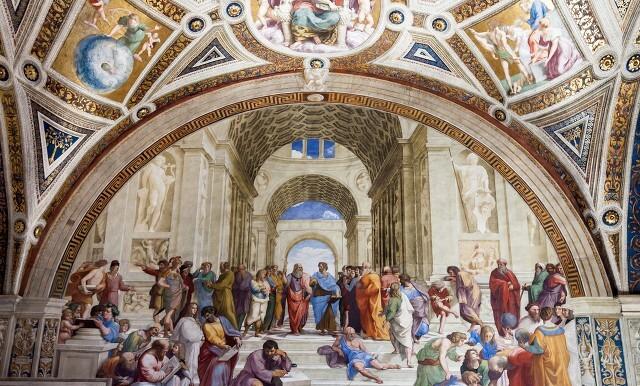Aristotle (384–323 BC), a famous Greek thinker, philosopher, political scientist, and jurist, was born in Stagiros on the Halkidikia Peninsula on the northern shore of the Aegean Sea. Yashi lost his father at an early age and was raised by his guardian Roxenos. Before 367 BC, he went to Athens to study at plato's academy, and was known as the "elite of the academy" because of his excellence.
In 343 BC, he was hired by King Philip II of Macedon to teach the 13-year-old prince Alexander. In 335 BC, Yashi returned to Athens and opened the "Lucion Academy" on the outskirts of the city. He has been engaged in education and research in the park for 12 years, and most of his works were completed during this period.
In 323 BC, Alexander died and anti-Macedonian factions of Athens came to power; Acene was classified as a pro-Macedonian faction and charged with "blasphemy." After that, Yashi was forced to flee Athens, wandered around, and soon died of illness on the island of Iavia.

Yasch is a polymath with deep knowledge of philosophy, logic, ethics, political science, psychology, natural sciences, aesthetics, rhetoric, and law. He was called by Engels "the most erudite figure" among ancient Greek scholars.
During his lifetime, Yashi wrote many works, a total of 400 volumes of various works, 47 of which are extant, many of which have been translated into Chinese on page 1.
Political Science is one of Yashi's masterpieces, and the manuscript was hidden in the cellar by Yashi's friends and disciples for political reasons for 200 years. It was not until the 1st century BC that the manuscript was returned to Athens and then shipped to Rome. In the 3rd century AD, the scholar Diodini compiled the "Biography of scholars", which mentioned that Yashi wrote 8 volumes of Political Science; after repeated analysis, it was confirmed that it was actually written by Yashi and compiled and printed it into a book.
There are various manuscripts in the book "Political Science", such as the "Paris One Codex", the British "Oxford Codex", the Rome "MilanEse Manuscript" and so on. The Chinese translation of Political Science was published by the Commercial Press in 1981. The edition was translated into Chinese based on the original Greek text revised by Newman in 1950 by Oxford University Press.
The book consists of 380,000 words and is divided into 8 volumes, each of which is divided into several chapters. However, the content of the book is different from ancient and modern scholars. Some divide the book into two groups: the first group discusses the ideal state, which belongs to books 2, 3, 7, and 8; the second group deals with the system of government, which belongs to books 4, 5, and 6; and the rest is the general or conclusion. Some scholars also believe that "Political Science" consists of three separate papers; the first deals with the family; the second kind of review, analysis and summary of the theories of predecessors; and the third is the discussion of the state, the form of government and the rule of law. The book "Political Science" is rich in content, full and profound in argumentation, and is the founding work of Western political science and jurisprudence, which involves political and legal ideas: the city-state view, the city-state political system and the rule of law concept.
Aristotle believed that "the middle class must be in power". In all city-states (nations), "all citizens can be divided into three parts (classes) - the rich, the poor, and the middle class in between." He believes that the middle class is the most ideal class. Neither the rich nor the poor possess the virtues of moderation, the former often being arrogant and wanton, leading to serious crimes; the latter tending to be lazy and rogue and prone to minor crimes. Both classes are the source of most evils. Only the middle class has the middle class of goodness, "the most obedient to reason", "very little ambition". "The middle class (the well-off family) is more stable than any other class," he said. They are neither as covetous of others as the poor, nor are their assets as much as those of the rich enough to arouse the covetousness of the poor. Neither harbor any conspiracy against others nor cannibalize each other. ”
Aristotle's view of the state, the form of government, and the rule of law is related to his "way of moderation." He attempted to grasp state power through the middle and lower classes of slave owners, to integrate the poles of rich and poor, to reconcile social contradictions, to ease class struggle, to stabilize social order, and thus to save the moribund slave-owning city-state. However, the development of history is not subject to the will of man. Aristotle's ideal city-state scheme is against the tide of history, an unrealistic fantasy, and despite his painstaking efforts, he cannot stop the wheel of history and the inevitable demise of the slave state of the city-state. Sure enough, shortly after his death, the Macedonians ruled all of Greece and the city-state system eventually collapsed. However, Aristotle did not disappear with the collapse of the city-state system, on the contrary, his failure was his success, and the theories and methods he expounded in "Political Science" occupied an important place in the history of political and legal thought in the West and the world!